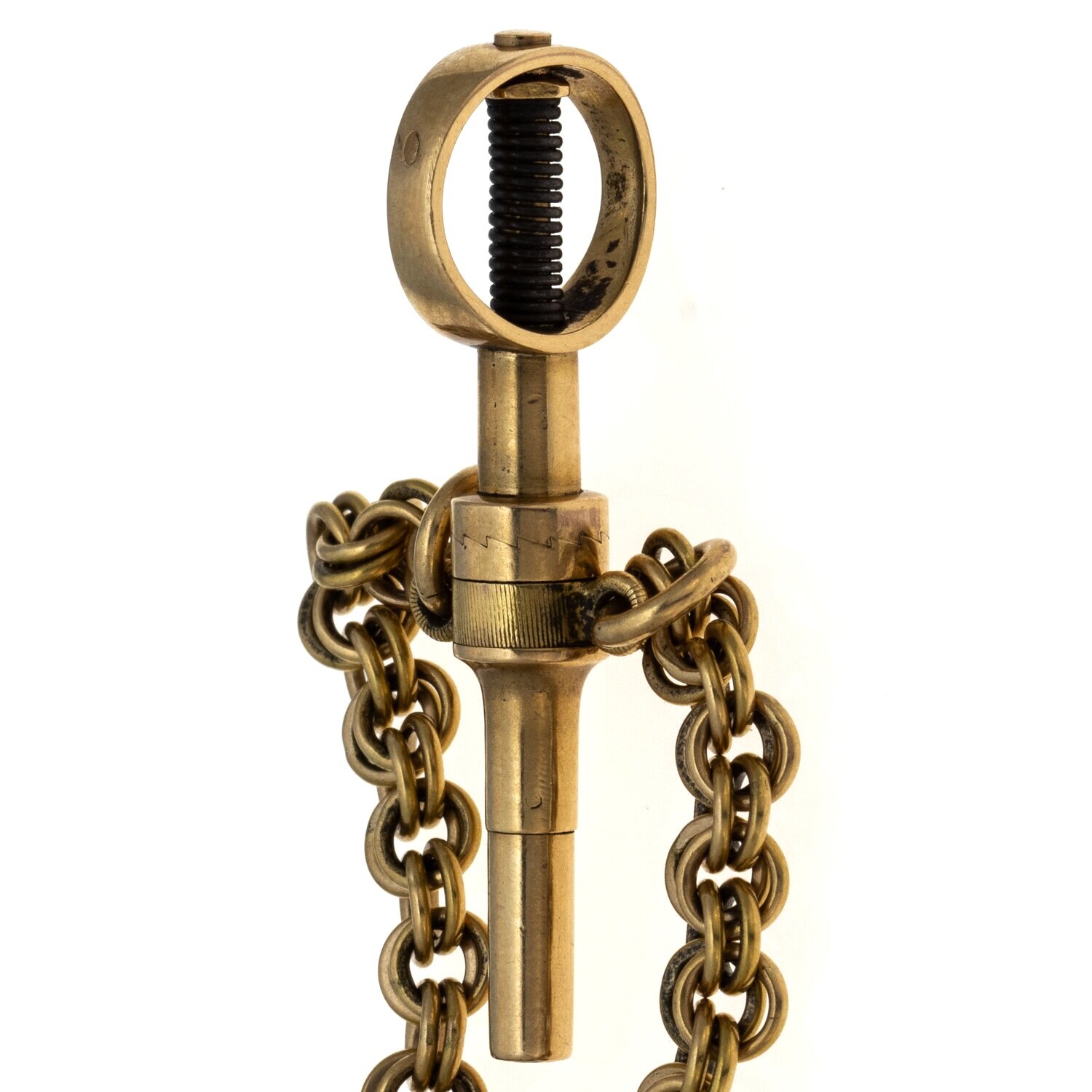The very first pocket watches from their creation until the third quarter of the 19th century, had key-wind and key-set movements. This was done by opening the case back or bezel with crystal, which then gave access to the winding and, or setting arbour.
An example of an early Breguet winding key made in gold.
The centre of the square shaft made in hardened steel.
The key even has a ratchet system integrated into it so that all force can only be driven in one direction when winding the mainspring.
Both case backs are open, the first, the dust cover, has a hole giving access to the square arbour.
Close up of the square above the fusee that links to the barrel with the mainspring inside.
An early pocket watch with winding through the dial.






